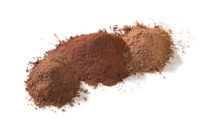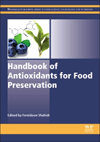Research links cocoa flavanols to cognitive improvements in older adults
Any news that cocoa and chocolate antioxidants are good for you is good news. And companies like Mars Inc., Germantown, Md., have an interest in generating rafts of research affirming just that.
Indeed, Mars has collaborated with research institutions for decades “to advance understanding of cocoa flavanols,” the company says, and it recently worked with scientists from Italy’s University of L’Aquila on a study, published online in August in the journal Hypertension, showing that cocoa flavanols may improve cognitive function in elderly subjects with nascent memory decline.
In the double-blind, controlled study, 90 healthy older adults with mild cognitive impairment (MCI) were randomly assigned to once-daily servings of a drink containing either high (990 mg), intermediate (520 mg) or low (45 mg) doses of cocoa flavanols. While the low-dose (LF) drinks contained highly processed alkalized cocoa powder, the high (HF) and intermediate (IF) versions were made using Mars’ Cocoapro process, which retains the cocoa’s naturally occurring flavanols even after processing. Additionally, the drinks were calorically and nutritionally matched and tasted and looked the same, thus blinding participants to their identities.
After the eight-week study period, the team tested the participants’ cognitive functioning using a standard battery of tests. It found significant improvements in processing speed, working memory and executive function in the intermediate- and high-flavanol groups.
“Specifically, improvements were demonstrated in both the HF and IF groups and to a lesser extent in the LF group,” the researchers said in a press release. Further, an integrative measure of overall cognitive function known as the z score improved only among those in the IF and HF groups, not in the LF cohort.
The study also revealed significant reductions in blood pressure in both the HF and IF groups, consistent with the findings of several previous studies. And participants in the HF and IF groups also enjoyed a reduction in insulin resistance, “suggesting an influential role of glucose metabolism,” according to the release.









